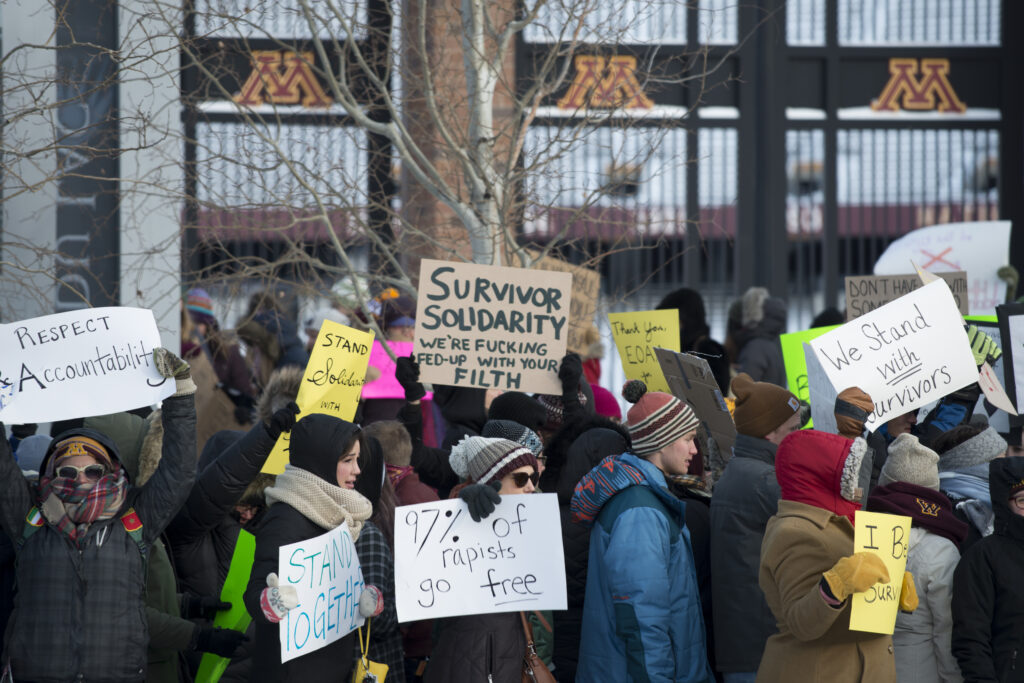As previously discussed, the content analysis revealed a shift in language from “victim” pre-#MeToo to “survivor” post-#MeToo. The use of the word “victim” to describe those who have experienced sexual misconduct decreased by almost 50% following the #MeToo Movement. In the sample from 2012 to 2016, individuals who experienced sexual violence were referred to as “victims” 61 times. This fell to 31 times in the period between 2018 and 2022. While the use of the word “victim” has fallen substantially, the use of the word “survivor” has increased by 275% following the popularization of the #MeToo Movement. The word was used only 4 times before #MeToo, experiencing a jump to 15 times after #MeToo. It is likely that this number will only increase in frequency with time.

The Significance of Survivors
The semantics differentiating “victims” from “survivors” may not be readily apparent to the average person. However, feminist politics interact with social movement theory to give very different meanings to the words. The rise of the #MeToo Movement has witnessed a shift from language defining those who have experienced sexual misconduct as “victims” to “survivors.” This is significant because the use of the term “survivor” recognizes the agency of women and their individual capacity. At the same time, this does not mean the use of “victim” is not respectful or politically correct, as this term “reminds us of the stranglehold of the system” that perpetuates sexual misconduct (Gupta 2014). The contrasting meanings attached to these words exist simultaneously, representing the complexity of sexual violence. Victimhood can be an impetus for change and activism, but it can also reinforce ideas of this individual being damaged, powerless, or shameful. Identifying as a survivor instead can emphasize the positive, hopeful, and even heroic nature of an individual. Rahila notes that “‘survivor’ celebrates the individual, but ‘victim’ recognizes the enormity of the system we are up against” (Gupta 2014).